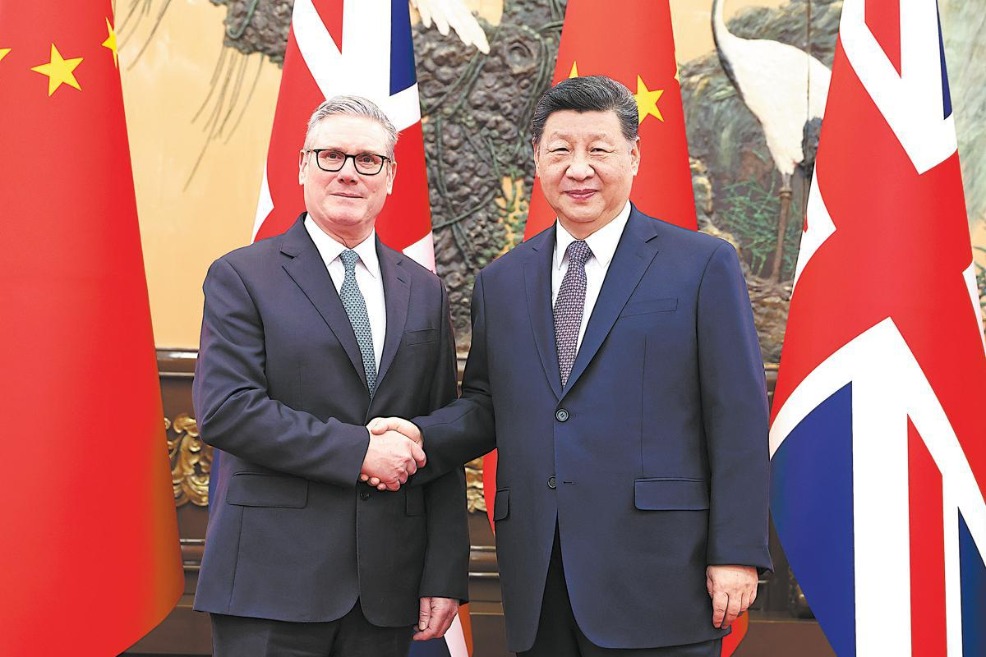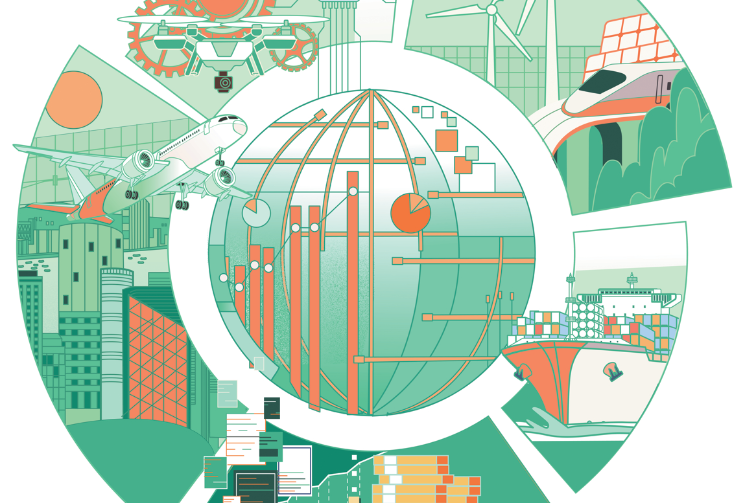Agenda achiever
Effective implementation of AfCTFA can help Africa realize its dream of becoming a prosperous, stable and peaceful continent


The AfCFTA which was signed by African heads of state and government on March 21, 2018, in Kigali, Rwanda, with the exception of Eritrea, came into effect on Jan 1, 2021.It signaled the shared belief of African countries that unity is vital to economic, social and political progress on the continent, and is indeed a crucial building block for the achievement of the African Union's Agenda 2063, which is aimed at bringing about the "Africa We Want".
It is credit to Africa that in a time the world has experienced a rise in protectionism and trade wars, the continent, over a period of five years, has taken the lead in negotiating an agreement that actually liberalizes trade.
The spread of the novel coronavirus has not only put health systems in African countries increasingly under pressure, but also had far-reaching ramifications for the continent which have threatened to slow down the commendable political, economic and social progress that Africa has made over recent decades.
As economic recovery of the continent is a top priority, the implementation phase of the AfCFTA is of critical importance to Africa. The AfCFTA represents a comprehensive plan which seeks to create a single, liberalized market for goods, services and capital in a 55-member bloc of 1.3 billion people with a combined GDP of $3 trillion with the aim of promoting industrial and infrastructure development.
In fact, through the AfCFTA, the continent, by eliminating trade barriers, will enhance competitiveness and stimulate investment, innovation and economic growth.
With the AfCFTA, Africa signaled its determination to increase trade, with the goal of reaching 50 percent intra-African trade between now and the year 2030. Intra-African trade is defined by the United Nations Conference on Trade and Development as the average of intra exports and imports, which currently amounts to only 17 percent of Africa's total trade. The comparative figures for Europe and Asia are 69 percent and 59 percent respectively. Intra-African trade reaching a level of 50 percent and hopefully above that, depends on Africa's capacity to accelerate regional value chains and the manner and pace in which Africa implements the agreement. This also resonates with bringing to fruition the "Made in Africa" initiative. Such enhanced trade could add at least 4.5 percent to the continent's GDP.Furthermore, by stimulating manufacturing and industrial capacity to enable trade in goods and products produced in Africa, local industries have the potential to double their production to $1 trillion in a decade with much of that coming from import-substitution manufacturing in order to meet increasing local demand.
The potential economic benefits are significant. The World Bank predicts that the new trade regime could unlock growth in income of up to $450 billion while lifting 30 million people out of poverty by 2035. Moreover, the free trade area, which is also the largest in the world, would place Africa on a sound footing in the global economy through efficiency gains, the emergence of new value chains and industrial diversification. This means that more value will be created in Africa generating jobs for the continent's youthful population.
For the AfCFTA to succeed much work remains to be done with the implementation process which is fraught with challenges. It will require political will, trust, transparency and reciprocity from of all African leaders. But it is essential that the AfCFTA should become a tool of economic diversification, industrialization and transformative development.
Concerted efforts will have to be made to start new industries or reconfigure value chains. Countries will also have to acquire technical skills, financing and skilled human capital to successfully implement the AfCFTA nationally.
Poor infrastructure continues to serve as a major non-tariff barrier to expanding trade. An efficient transport system is critical to enabling intra-regional trade.
Inefficient ports and customs as well as the lack of reliable sources of energy add to the difficulty of doing business in Africa.
African governments should therefore make frank assessments of how investor- and business-friendly their economies are. There is a compelling need to reduce bureaucracy, regulatory and policy uncertainty in doing business in many African economies.
Despite these challenges, all Africans see the AfCFTA as an opportunity to turn a new page on Africa's economic development and its future growth trajectory.
Particularly, Africa is also in the process of "realizing its dream" by implementing its strategic vision of the AU's Agenda 2063, which encapsulates Africa's strategic framework to become a prosperous, stable and peaceful continent. The AfCFTA is an integral part of this process. This goal is closely linked to the attainment of the UN 2030 Sustainable Development Goal of eliminating poverty which continues to pose a serious challenge for many African countries.
China's State Councilor and Foreign Minister Wang Yi recently stated: "China supports Africa's efforts to develop the AfCFTA." He unequivocally added that China would "encourage Chinese companies and financial institutions to take an active part in infrastructure connectivity projects which will facilitate cross-border logistics and customs clearance". Furthermore, he said that China would work with Africa to "deepen the integration of industrial and supply chains" and also "encourage Chinese businesses to step up investment and technological cooperation with Africa".
With the major challenge on its hands of making the AfCFTA work and advancing toward the "Africa we want", the continent welcomed Wang Yi's constructive words which speaks to many of the implementation challenges Africa is concerned about. With the knowledge that China has consistently proved itself to be a reliable and trusted friend in times of need, Africa looks forward to continued engagement with China inter alia at the upcoming Forum on China and Africa Cooperation in Senegal later this year.
The author is a senior research fellow at the Institute of African Studies at the Zhejiang Normal University and a former senior diplomat in the South African Department of International Relations and Cooperation. The author contributed this article to China Watch, a think tank powered by China Daily.


































